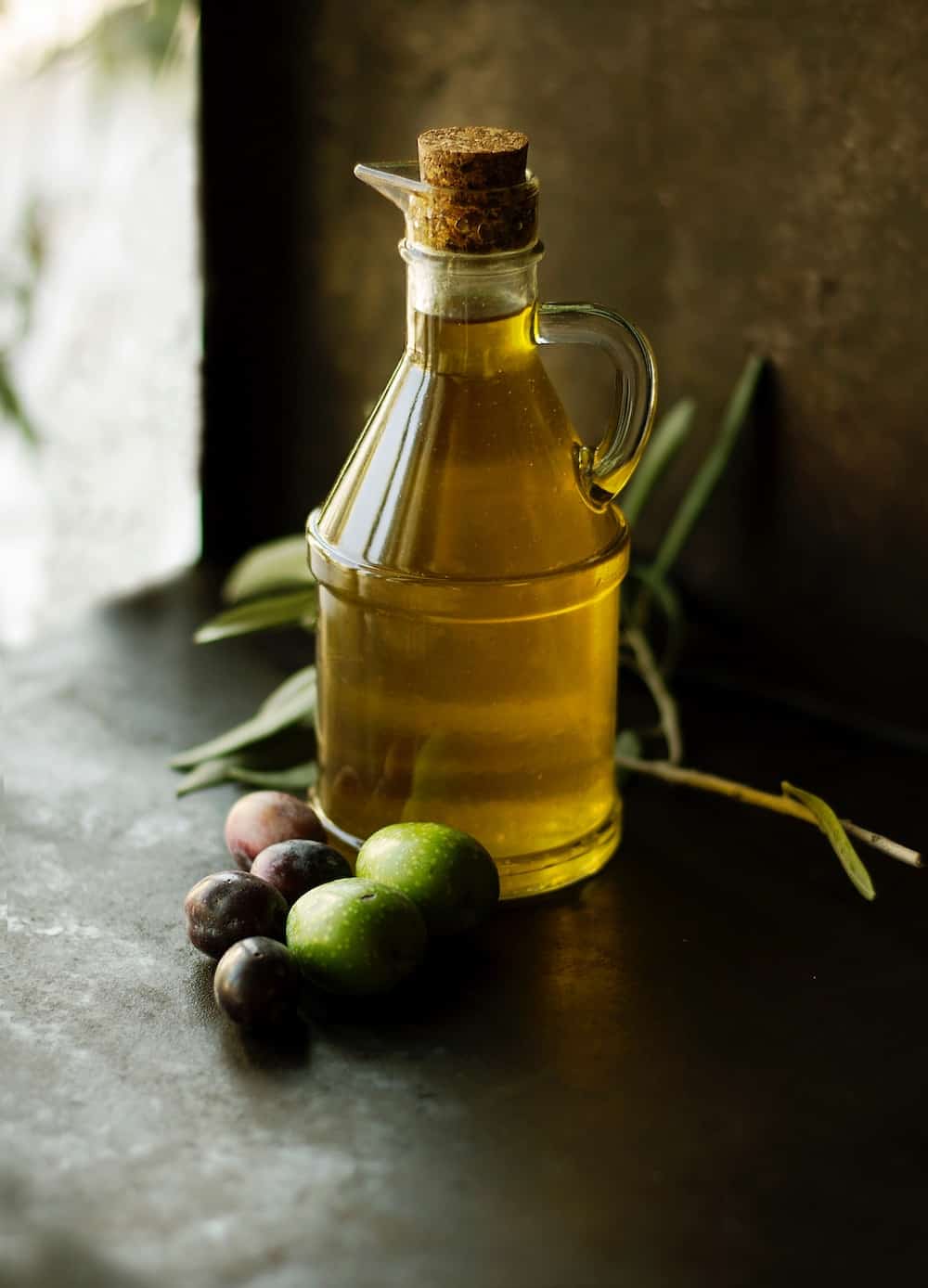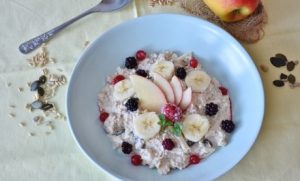Many people often suffer from severe headaches and migraines.
If you are also suffering from throbbing pain, here are 19 natural methods that can help you quickly get rid of the headache.

Headache is a common affliction many people deal with on a daily basis.
The symptoms of headache range from uncomfortable to almost unbearable and can significantly disrupt your everyday life.
There are several types of headaches, with tension headaches being the most common.
In contrast, Cluster headaches are painful and appear in clusters.
While migraine is a moderate to severe type of headache.
Many medications are aimed at alleviating headache symptoms.
However, there are also a number of effective natural treatments and home remedies for headaches.
In this article, we’ll give you 19 effective home remedies to naturally get rid of headaches and migraines.
1. Drink A Lot of Water
Inadequate hydration and dehydration can cause you to get a headache.
In fact, studies have shown that chronic dehydration and under-drinking is a common cause of tension-type headache and migraine.
Fortunately, drinking water has been shown to reduce headache symptoms in most dehydrated individuals within 30 minutes to three hours.
In addition, dehydration can affect concentration and cause irritability, making your headache symptoms even worse.
To avoid headaches due to dehydration, focus on drinking plenty of water throughout the day and eating water-rich foods.
2. Take Magnesium
Magnesium is an important mineral necessary for innumerable functions in the body, including blood sugar control and nerve transmission.
Interestingly, magnesium has also proved to be a safe and effective remedy for headache.
The evidence suggests that magnesium deficiency is more common in people with frequent migraine headaches than in those on sufficient magnesium.
Studies have shown that taking 600 mg of oral magnesium citrate per day has helped reduce both the frequency and severity of migraine headaches.
However, in some people taking magnesium supplements may cause digestive side effects such as diarrhea.
That is why it is best to start with a smaller dose in the treatment of headache.
You can buy magnesium supplements online or access magnesium-rich foods.
3. Acupressure For Headache
Acupressure therapy is a helpful treatment for headache.
It is applied to the hand and wrist of the human.
Acupressure exerts pressure on certain parts of the body.
It is believed that stimulating specific body points in this way releases muscle tension and relieves pain.
A popular pressure point is the LI-4 point in the space between the base of the left thumb and the index finger.
Applying firm but not painful circular pressure to the LI-4 point, with the opposite hand for 5 minutes, can relieve headache.
This is a popular “home remedy” that you can use to get rid of your headache.
A study from 2012 examined 40 people who had migraines.
The pressure on the PC6 acupuncture point has been found to be effective in relieving migraine-related nausea or vomiting associated with migraine headache.
This acupuncture point is located three fingers away from the base of the wrist on the inside of the arm.
4. Limit Your Alcohol Consumption
Studies have shown that alcohol can trigger migraine in about one-third of those who often experience a headache.
Alcohol has also been shown to cause tension headaches and cluster headaches in many people.
Alcohol is a vasodilator, i.e. it dilates the blood vessels and makes the blood flow better.
Vasodilation can cause headaches in some people.
In fact, headaches are a common side effect of vasodilators such as blood pressure medication.
In addition, alcohol acts as a diuretic, causing the body to lose fluids and electrolytes through frequent urination.
This fluid loss can lead to dehydration, which in turn can cause or worsen headaches.
5. Ensure Adequate Sleep
Sleep deprivation can be harmful in many ways and even cause headaches in some people.
For example, one study compared the frequency and severity of headache in people who had less than six hours of sleep per night and those who slept longer.
It was found that those who got less sleep had more frequent and severe headaches.
However, it has also been shown that too much sleep causes headaches, so the right amount of rest is important for those looking for natural headache prevention.
For maximum benefit, aim for the sweet spot for seven to nine hours of sleep per night.
6. Avoid Foods With Histamine
Histamine is a chemical that occurs naturally in the body and plays a role in the immune, digestive and nervous systems.
It is also included in certain foods like aged cheese, fermented foods, beer, wine, smoked fish and cured meats.
Studies suggest that eating histamine may cause migraine in those who respond to it.
Some people are unable to properly excrete histamine because they impair the function of the enzymes responsible for their degradation.
Avoiding histamine-rich foods can be a helpful strategy for people who have frequent headaches.
7. Use Essential Oils

Essential oils are highly concentrated liquids that contain aromatic compounds from a variety of plants.
They have many therapeutic benefits and are most commonly used topically, although some of them can be taken.
Essential oils of peppermint and lavender are especially helpful if you have a headache.
It has been shown that the application of peppermint essential oil to the temples reduces the symptoms of tension-type headache.
Lavender oil is also highly effective in relieving migraine pain and associated symptoms when applied to the upper lip and inhaled.
You can buy high-quality peppermint oil and lavender oil online at Amazon.
8. Take A Vitamin B complex
B vitamins are a group of water-soluble micronutrients that play an important role in the body.
For example, they contribute to the synthesis of neurotransmitters and help transform food into energy.
Some B vitamins may have a protective effect against headaches.
Several studies have shown that the B-vitamin supplements riboflavin (B2), folic acid, B12 and pyridoxine (B6) can reduce headache symptoms.
A vitamin B complex contains all eight B vitamins and is a safe and inexpensive way to naturally treat headaches.
B vitamins are considered safe for regular use because they are water-soluble and excess amounts are excreted in the urine.
9. Lose The Headache With A Cold Compress
Using a cold compress can help reduce the symptoms of your headache.
Applying cold or frozen compresses to the neck or head area reduces inflammation, slows the nerve conduction, and narrows the blood vessels, all of which helps relieve headache.
In a study of 28 women, the application of a cold gel pack on the head significantly reduced migraine.
To make a cold compress, fill a waterproof bag with ice and wrap it in a soft towel or kitchen towel.
Place the compress on your neck, on the head or on your temples to relieve headaches with this simple home remedy.
10. Take a Coenzyme Q10 Supplement
Coenzyme Q10 (CoQ10) is an endogenous substance that helps transform food into energy and acts as a powerful antioxidant.
For example, a study in 80 individuals showed that taking 100 mg CoQ10 supplements per day reduced the frequency, severity, and length of migraine.
Another study involving 42 people who frequently had migraine showed that three 100-mg dosages of CoQ10 throughout the day helped reduce the frequency of migraine and migraine-related symptoms such as nausea.
11. Try An Elimination Diet
Studies suggest that food intolerances can trigger headaches in some people.
To find out if a particular food causes frequent headaches, try an elimination diet that removes the foods that are most related to your headache symptoms.
Ripened cheese, alcohol, chocolate, citrus, and coffee are among the most commonly reported triggers of food in people with migraine.
In a small study, a 12-week elimination diet reduced the number of migraine headaches people had.
These effects started at the four-week mark.
That is, if you have more headaches or migraines, try gradually removing the above foods from your daily diet.
Afterward, check if your headaches are improving.
12. Drink Caffeinated Tea Or Coffee
Drinking caffeinated drinks such as tea or coffee can help with headaches.
Caffeine improves mood, increases alertness and constricts blood vessels, which can be beneficial for headache symptoms.
It also helps increase the efficacy of common headache medications, such as ibuprofen and acetaminophen.
However, it has also been found that caffeine withdrawal can cause headaches.
This is true when a person regularly consumes large amounts of caffeine and suddenly relinquishes it all together.
Therefore, people who often have a headache should pay attention to their caffeine intake.
13. Acupuncture For Headache
Acupuncture is a technique of traditional Chinese medicine in which thin needles are inserted into the skin.
Its aim is to stimulate certain points on the body.
In fact, this treatment has been associated with a reduction in headache symptoms in many studies.
A review of 22 studies involving more than 4,400 people found that acupuncture was as effective as conventional migraine medication.
If you are looking for a natural way to treat chronic headaches, acupuncture can be a very good choice to get rid of headaches without medication.
14. Relax With Yoga
Practicing yoga is an excellent way to relieve stress.
Also, it increases mobility, relieves pain, and improves the overall quality of life.
Exercising yoga can even help to reduce the intensity and frequency of headaches.
One study examined the effects of yoga therapy on 60 people with chronic migraine.
Frequency and intensity of headache were reduced in those who received both Yoga therapy and conventional treatment than those who received conventional therapy alone.
Another study found that people who practiced yoga for three months had a significant reduction in the frequency, severity and associated symptoms of headache compared to those who did not practice yoga.

15. Avoid Strong Odors
Strong odors such as perfumes and similar products can cause headaches in some people.
A study involving 400 people with either migraine or tension-type headaches found that strong and penetrating odors, especially perfumes, often caused headaches.
This olfactory hypersensitivity is called osmophobia and is widespread in people with chronic migraine.
If you think you are sensitive to smells, avoiding perfumes, cigarette smoke, and strong-smelling foods can help reduce your chance of getting a migraine headache.
16. Try A Herbal Medicine
Certain herbs such as feverfew and butterbur can relieve the symptoms of headache.
Feverfew is a flowering plant that has anti-inflammatory properties.
Some studies suggest that taking feverfew dietary supplements at doses of 50-150 mg per day may reduce the incidence of headache.
However, other studies have found no benefit.
Several studies have shown that taking butterbur extract at doses of 50-150 mg reduces the symptoms of headache in adults and children.
Feverfew is generally considered safe if one takes it in recommended amounts.
So if you want to treat your headache with a simple home remedy and natural, herbal medicines, a feverfew supplement is recommended.
17. Avoid Nitrates and Nitrites
Nitrates and nitrites are common food preservatives added to products.
You can commonly find those in meat products, sausages, hams and bacon to keep them fresh by preventing bacterial growth.
Researchers found that foods containing preservatives such as nitrates and nitrites cause headaches in some people.
Nitrites can cause headaches by causing dilation of the blood vessels.
To minimize your exposure to nitrites, limit the amount of packaged and sealed meat products in your diet.
If possible, choose nitrate-free products.
18. Drink Some Ginger Tea
The ginger root contains many beneficial ingredients, including antioxidants and anti-inflammatory substances.
A study of 100 people with chronic migraine showed that 250 mg of ginger powder was just as effective as the conventional headache medication Sumatriptan for reducing migraine pain.
In addition, ginger helps to reduce nausea and vomiting, common symptoms associated with a severe headache.
You can take ginger powder in capsule form or make a strong tea with fresh ginger root.
19. Do Sports and Work Out
One of the easiest ways to reduce the frequency and severity of your headaches is to exercise.
For example, a study of 91 people found that 40 minutes of indoor cycling three times a week was more effective than relaxation techniques to reduce headache.
Another large study of more than 92,000 people showed that low physical activity is clearly associated with increased headache risk.
There are many ways to increase your level of activity.
One of the easiest ways is simply to increase the number of steps you do throughout the day.
More exercise helps protect you from headaches and is an effective measure if you already have a headache.
Conclusion: How To Cure Migraine
Many people are affected by frequent headaches and migraines, which is why it is important to find natural and effective treatment options.
There are countless effective home remedies for headaches, such as Yoga, herbal supplements, essential oils, and dietary changes.
These are all natural, safe and effective ways to relieve headaches – without medication.
While traditional methods such as medications are often needed for chronic headaches, there are many natural and helpful ways to prevent and treat headaches if you are looking for a more holistic approach.
The next time you have stabbing tension headaches or migraines, try some of the above methods before you take aspirin and chemical medicines.
Do you know any other home remedies to relieve headaches?
I look forward to your comment!
Talk soon,
Janik




